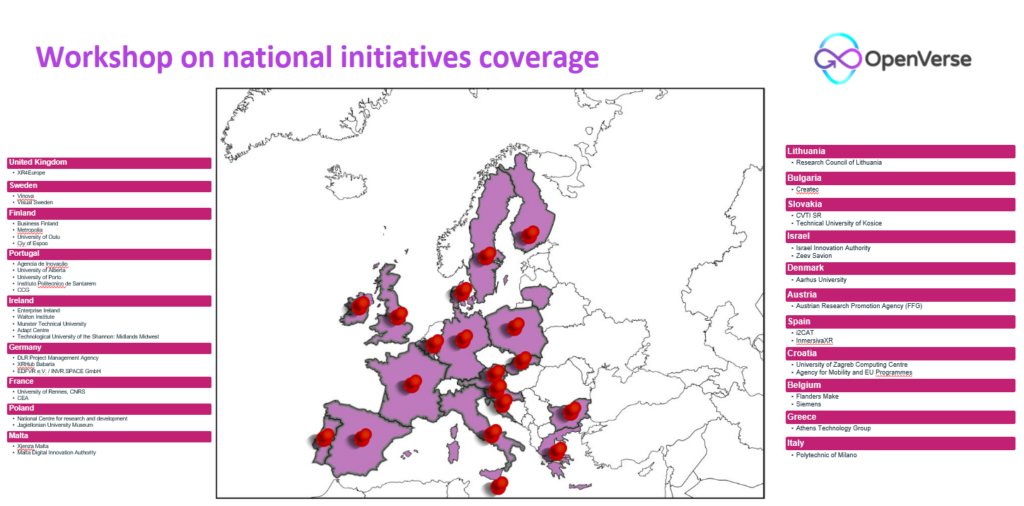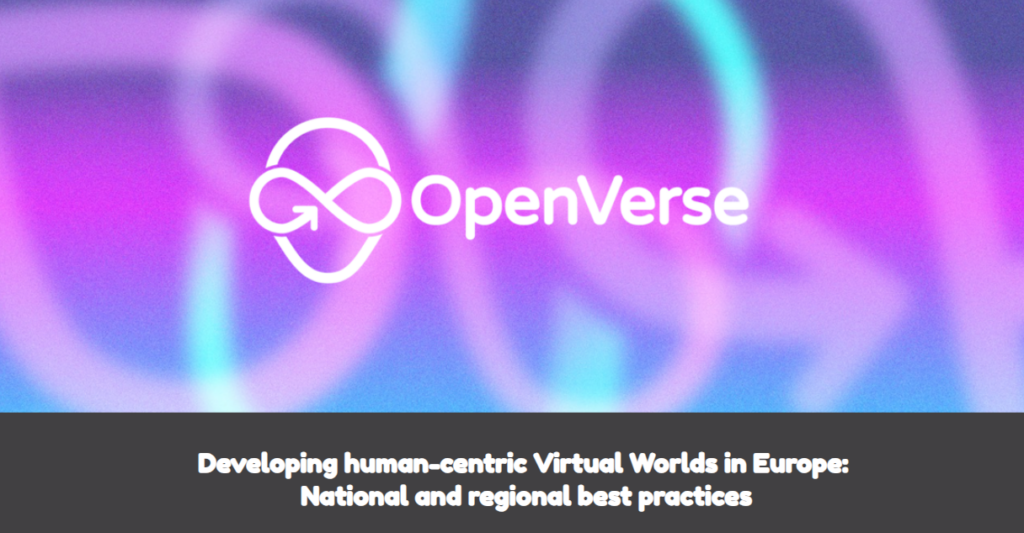

At the end of January, the OPENVERSE consortium held a webinar called “Developing Human-Centric Virtual Worlds in Europe: National and Regional Best Practices.”
The aim of the session was to promote collaboration and communication among key stakeholders at both the national and regional levels. While Europe has seen various national initiatives driving the development of Virtual World technologies, the fragmented nature of these efforts highlighted the need for better cooperation and stronger community connections to maximise their impact. This webinar positioned Virtual Worlds at the forefront of an evolving field, ready to transform how people interact, learn, work, and innovate.
Experts from various European countries were invited to share their experiences with initiatives operating within Virtual Worlds. The European Commission provided an overview of the EU policy landscape surrounding Virtual Worlds, highlighting its ongoing commitment to engaging in various VR initiatives. Gabriel Gonzalez Castane from BDVA discussed the work of the OPENVERSE consortium, which is actively developing several tools: the ‘Technology Framework’ and ‘The Observatory,’ among others.
The core of the session featured insights from national initiatives on Virtual Worlds. Mark Roddy, representative of the Irish XR/VR Community at Eirmersive, emphasised the need for international collaboration to avoid duplicating efforts, pointing out that local solutions could often be applied on a global scale. Lorena Gonzalez Lopez, from Inmersiva XR, highlighted the challenges within the Spanish XR ecosystem, particularly issues with communication and gender disparities. In Slovenia, Ales Pevc from XR Slovenia noted that XR adoption is primarily taking off in the tourism and marketing sectors. Meanwhile, up in Finland, Janina Rannikko from Helsinki XR Centre discussed the country’s robust XR ecosystem, which is striving to become a European leader in XR adoption. The session wrapped up with Jakob Werni and Peter Kerschl presenting several Austrian cooperative R&D projects that utilised virtual reality to enhance other fields.
The OPENVERSE webinar served as a collaborative space for key stakeholders involved in national and regional initiatives to exchange ideas and insights. Participants shared their experiences and worked together to create a unified strategy for advancing human-centric Virtual Worlds across the continent. The event also helped strengthen connections, laying the foundation for future community-building and innovation in this fast-evolving space. Staying connected and informed about ongoing collaboration is essential to growing the VR community and ecosystem, and taking it to the next level.
About OPENVERSE
The vision of the OPENVERSE project is to support the creation of inclusive, open, and ethically responsible European Virtual Worlds, enhancing the European Union’s technological sovereignty in the global arena. Its strategy involves integrating diverse technological expertise, fostering collaborative innovation, and ensuring interoperability, privacy, and security in digital environments. OPENVERSE aims to lay the foundational framework for these Virtual Worlds, combining user co-creation with extended reality technologies, addressing legal and ethical challenges, and guiding future policy and industry standards for globally influential Virtual Worlds.
